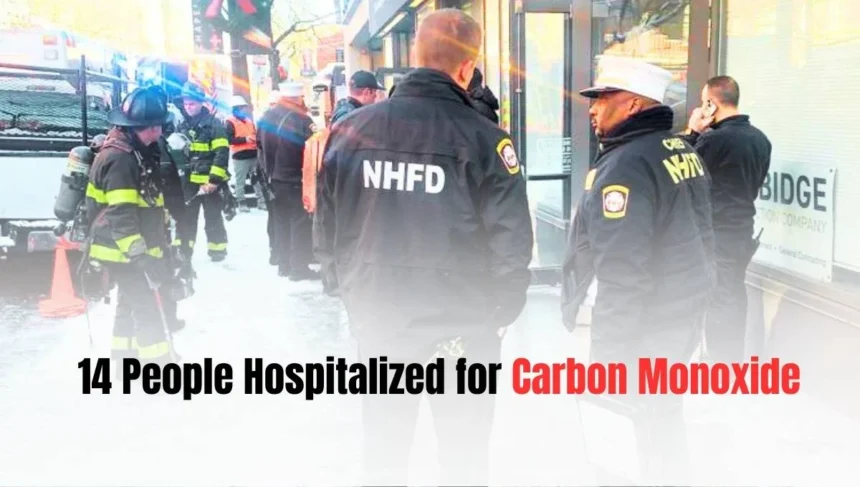14 people who worked at a building owned by Yale University were taken to the hospital on Wednesday because they were poisoned by carbon monoxide.
The accident happened because of a propane-powered concrete cutter being used on a building site, as well as the cold weather and the lack of carbon monoxide monitors.
The workers got sick from carbon monoxide when they used a saw driven by propane to cut concrete. The fumes were being let out, but the gas was not leaving the house. It’s possible that the cold outside made the leak’s affects worse.
Fourteen people were taken to the hospital, including five Yale University staff and nine construction workers. One of the workers was found unconscious outside the building. He was taken to a hyperbaric chamber in a Brooklyn, New York, hospital, where he was in serious condition. It wasn’t clear where another worker was taken because he was also in “pretty serious condition.”
The event is being looked into by the Occupational Safety and Health Administration (OSHA). New Haven Mayor Justin Elicker told USA Today that just before 8 a.m., first rescuers got a call about someone who was found unconscious on the sidewalk. Carbon monoxide monitors from the New Haven Fire Department found “about 10 times the safe levels” in the building.
There was a gas leak, so the New Haven Fire Department told everyone not to work at the spot. Representatives for Yale University said that they have since taken steps to protect their employees and the public.
Headaches, dizziness, weakness, nausea, vomiting, chest pain, and confusion are all signs of carbon monoxide overdose. Making sure you have carbon monoxide monitors and knowing the risks of using propane-powered tools in cold weather is very important.
Sources:
- https://www.washingtonpost.com/national/2024/01/17/yale-carbon-monoxide-construction-workers/e16895f8-b57c-11ee-b285-0853d4d1b92f_story.html
- https://www.wptv.com/14-hospitalized-for-carbon-monoxide-poisoning-at-yale-university
- https://www.usatoday.com/story/news/nation/2024/01/17/carbon-monoxide-poisoning-yale-university/72261963007/



